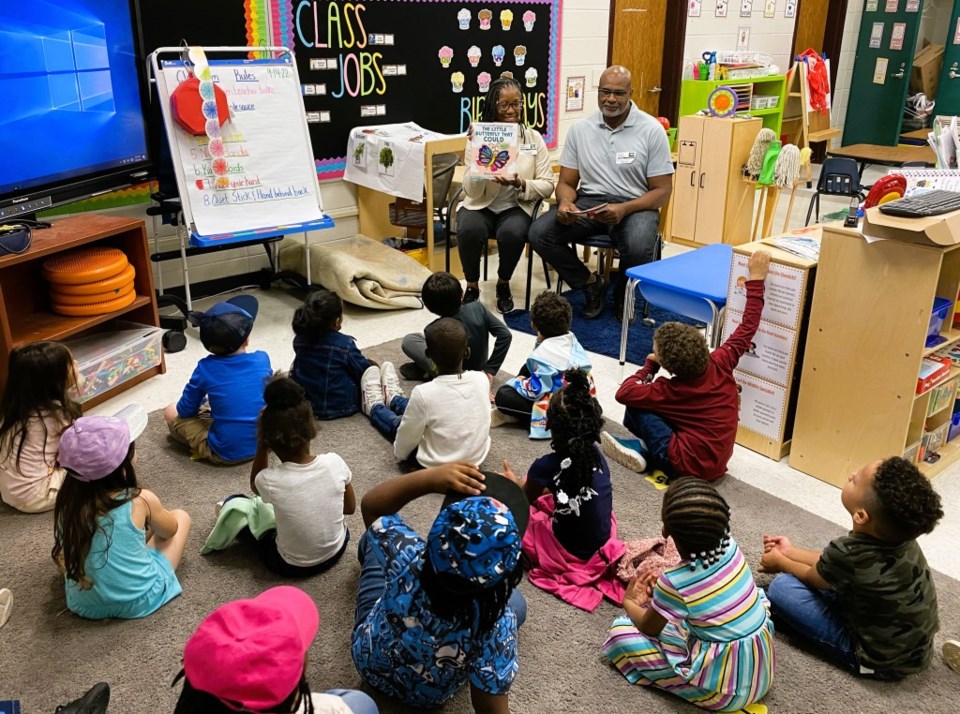Pursuant to SB 211, the Georgia Council on Literacy is required to: “Review the conditions, needs, issues, and problems related to state literacy outcomes; make recommendations for legislation and appropriations to support improving such outcomes; and provide by November 30 of each year a report of such review and recommendations to the Governor, the office of Planning and Budget, the Speaker of the House of Representatives, and the President of the Senate.” The report is available at www.GOSA.georgia.gov.
Scott Johnson, Council Chair, sent the report to all parties on November 29, 2023.
For questions about the report, please contact Joy Hawkins, Executive Director, Governor’s Office of Student Achievement, [email protected].
Chairman’s Message
On behalf of the Georgia Council on Literacy, I want to thank Governor Brian Kemp and the Georgia General Assembly for their vision of a more literate Georgia. There is nothing more important for our state than to address illiteracy and low literacy and to ensure that all our citizens can read.
I have stated at every meeting of the Council, “We gather to solve Georgia’s most solvable problem.” I hope this report demonstrates that we are off to a good start and promise that we will fulfill the role and mission the Georgia General Assembly expects. I do not know if this is the most important thing Georgia will undertake in the next decade, but I do know that it is as important as anything that Georgia will do.
At the first meeting of the Council on August 7 at Georgia Southern University, Speaker Jon Burns addressed the Council and stressed the importance of our work. He closed his comments with the admonition to “give us the facts.”
So let me give you the facts. Based on 2022 assessment data, 44% of third grade students were “ready,” and 56% were not ready for the next grade/level. For purposes of this data, we used the state’s 2018 ESSA plan for reading readiness - the percentage of students at or above the Lexile stretch band midpoint.
At the State Board of Education (SBOE) meeting on November 2, the state’s measure for reading was changed. Instead of using the Lexile stretch band midpoint and above as “ready,” the SBOE will use the entire stretch band (520 - 820 for third grade) as “on grade level” but acknowledge that the percentage of the students below the midpoint, but within the stretch band “need additional support.” The Governor’s Office of Student Achievement (GOSA) and I think this measure preserves the midpoint and gives parents and students more transparency about the student support needed. Now, the question is, what are those supports? The Council will be working on that issue in 2024 to make informed recommendations for policy-maker consideration.
It is also important to monitor how we stand nationally. The 2022 data from the National Assessment of Educational Progress (NAEP) shows 32% of students are proficient readers, 68% are not. See page 17 of this report for more detail as well as access to the data information provided to the Council
While we obviously have work to do, the passage of HB 538 and SB 211 has laid a foundation for structural change. As required by HB 538, we are positioned for all literacy instruction to be based in the science of reading research. We know this reform works. Mississippi adopted this approach a decade ago and the state has experienced tremendous growth in literacy skills.
Dr. Ben Scafadi, Director of the Education Economics Center at Kennesaw State University, provided information to me that challenges Georgia to aim high on literacy efforts. Looking back, Dr. Scafadi noted that Georgia 2013 to 2019 NAEP scores dropped by 2 points. During that 3 same time, Mississippi saw a 10-point increase. Mississippi did this with a focused and committed statewide approach to the science of reading research. I commend to you Dr. Scafidi’s memo, with this detail as well as other data that puts Georgia in an excellent position to find success.
Thankfully, we have the advantage of lessons learned from Dr. Carey Wright, the former Mississippi State School Superintendent, who presented at the October 17 Council meeting and graciously offered her support for our efforts. Dr. Wright’s presentation can be found here. We are committed to using her expertise.
Dr. Wright gave us the best advice, “there are no silver bullets. It takes committed work where everyone is rowing together and in the same direction.
"I am thankful for the Georgia Council on Literacy. We now have the place where we get out of our silos and create the cross-agency alignment needed – where together we solve this problem.
Our responsibility as a Council, spelled out in SB 211, is to perform a comprehensive study of all state resources and activities that are funded to support improved literacy outcomes and set recommended priorities for future investments and strategies. This first report reflects the start of our work.
Again, on behalf of all members of the Council, it is an honor to serve our citizens in this transformative work
Scott Johnson, Chairman Georgia Council on Literacy
About the Georgia Council on Literacy
Senate Bill 211 was introduced by Senator Billy Hickman (4th) during the 2023 Session of the Georgia General Assembly. This legislation unanimously passed both the House and Senate. Representative Bethany Ballard (147th) was the House Sponsor. Governor Kemp signed the bill into law on April 13, 2023, and the Act became effective on July 1, 2023.




